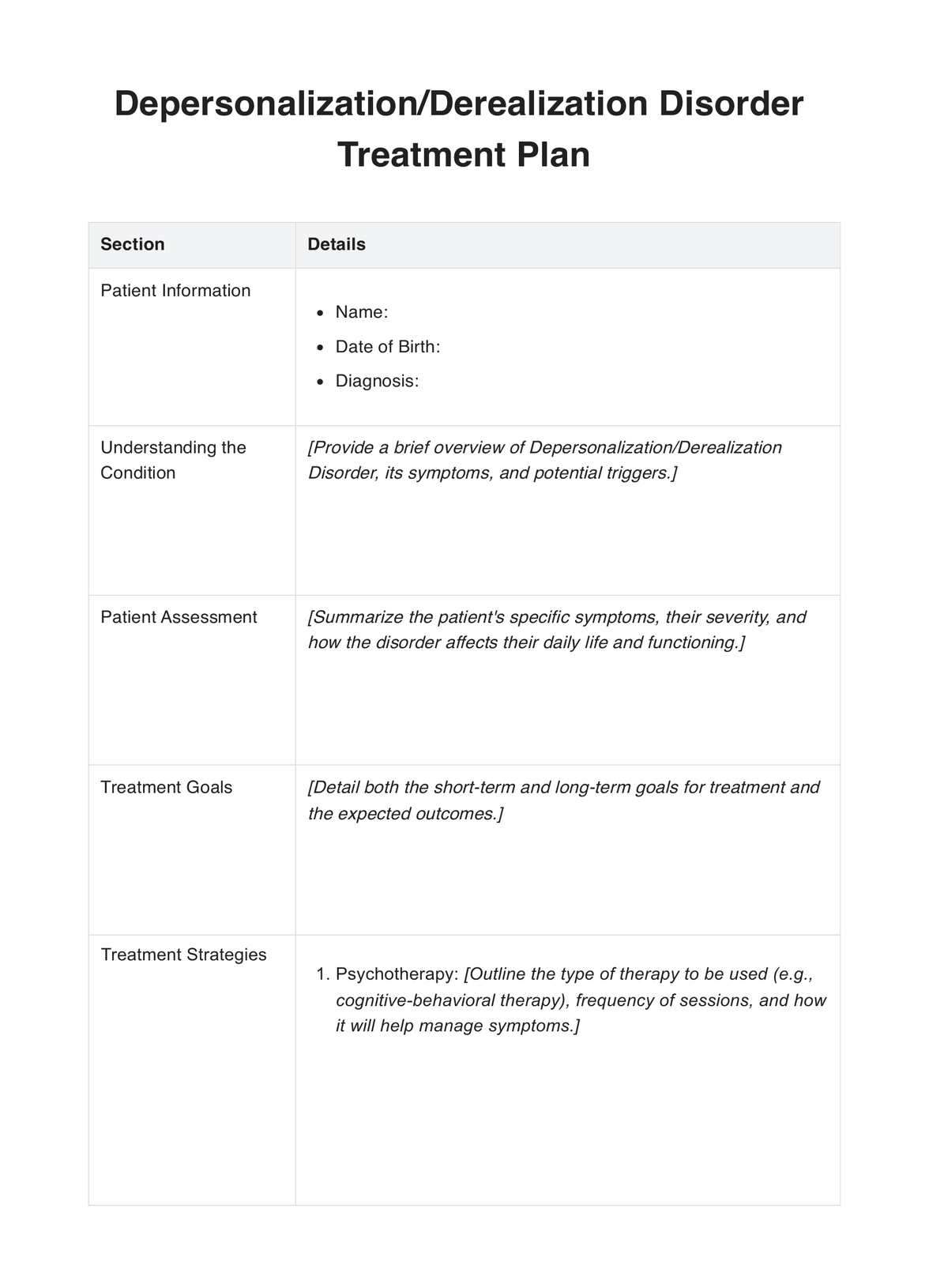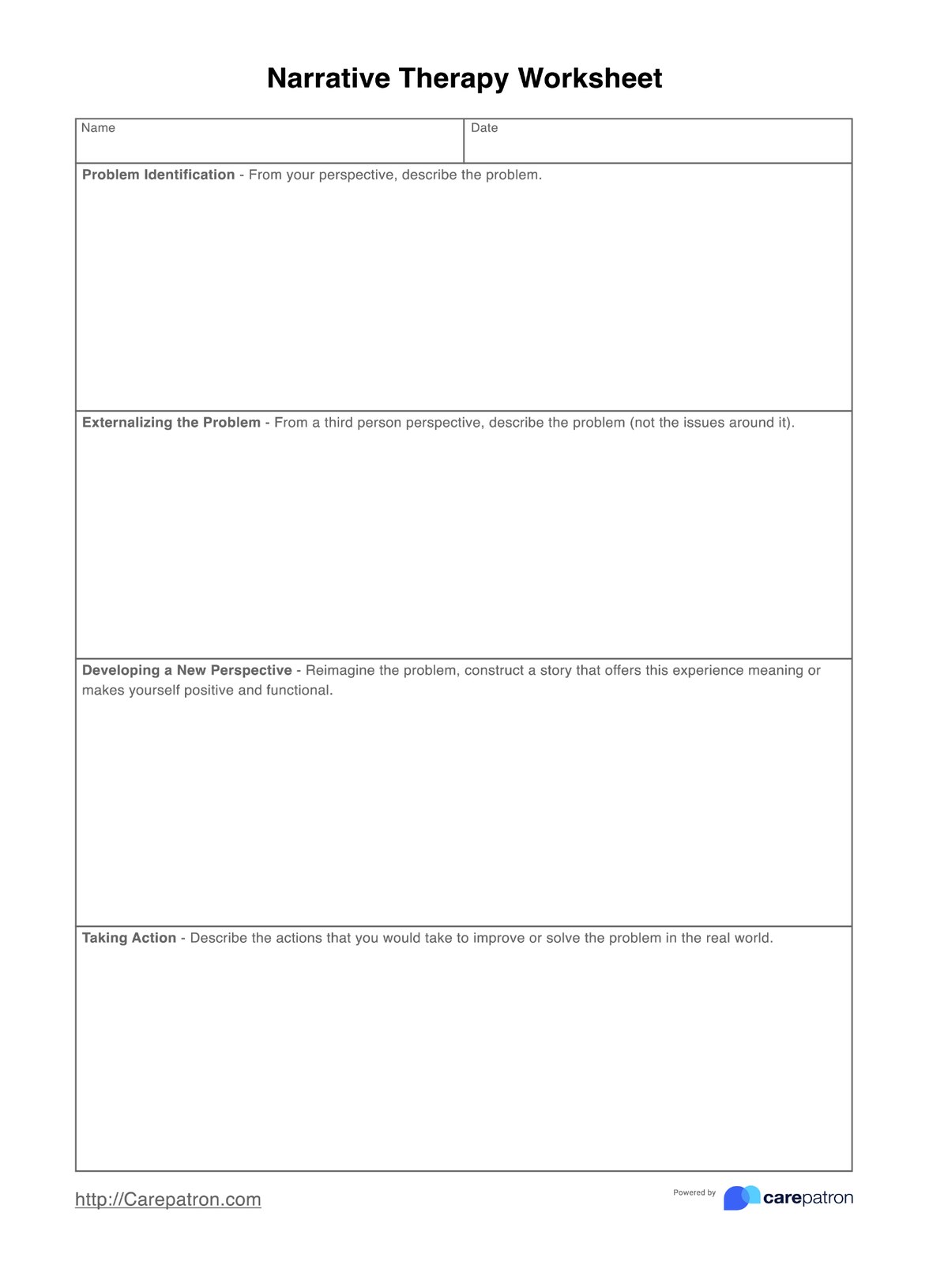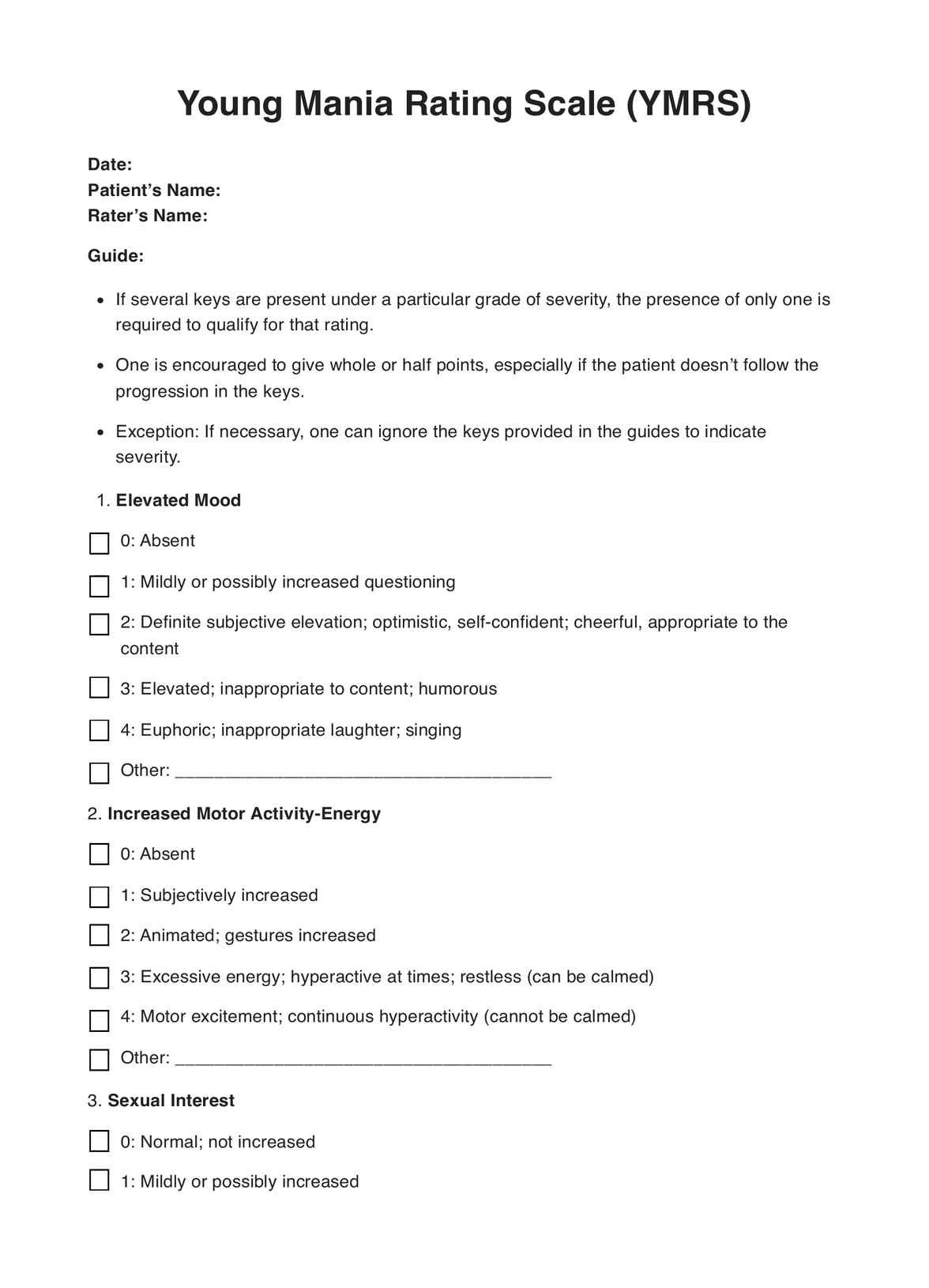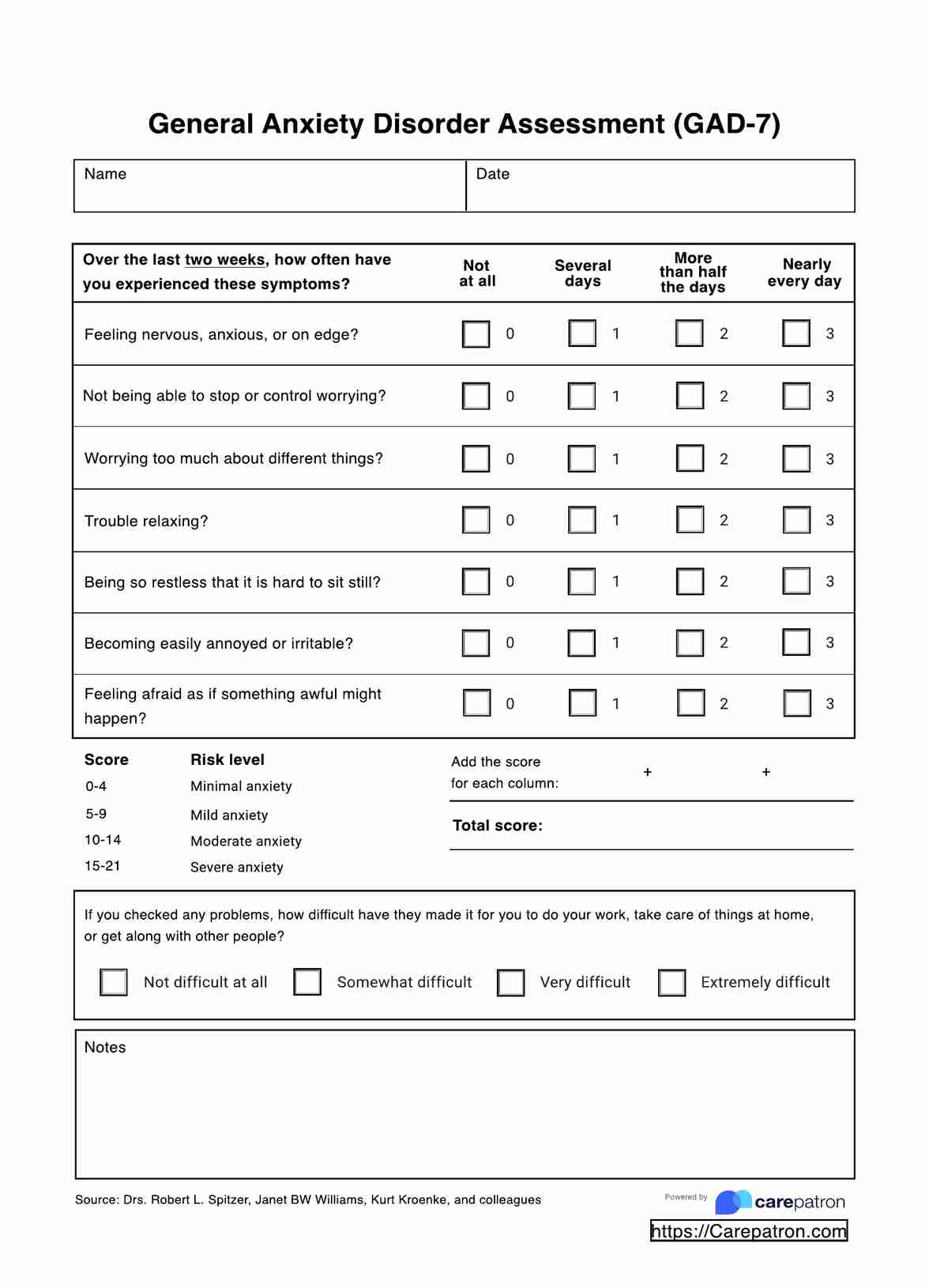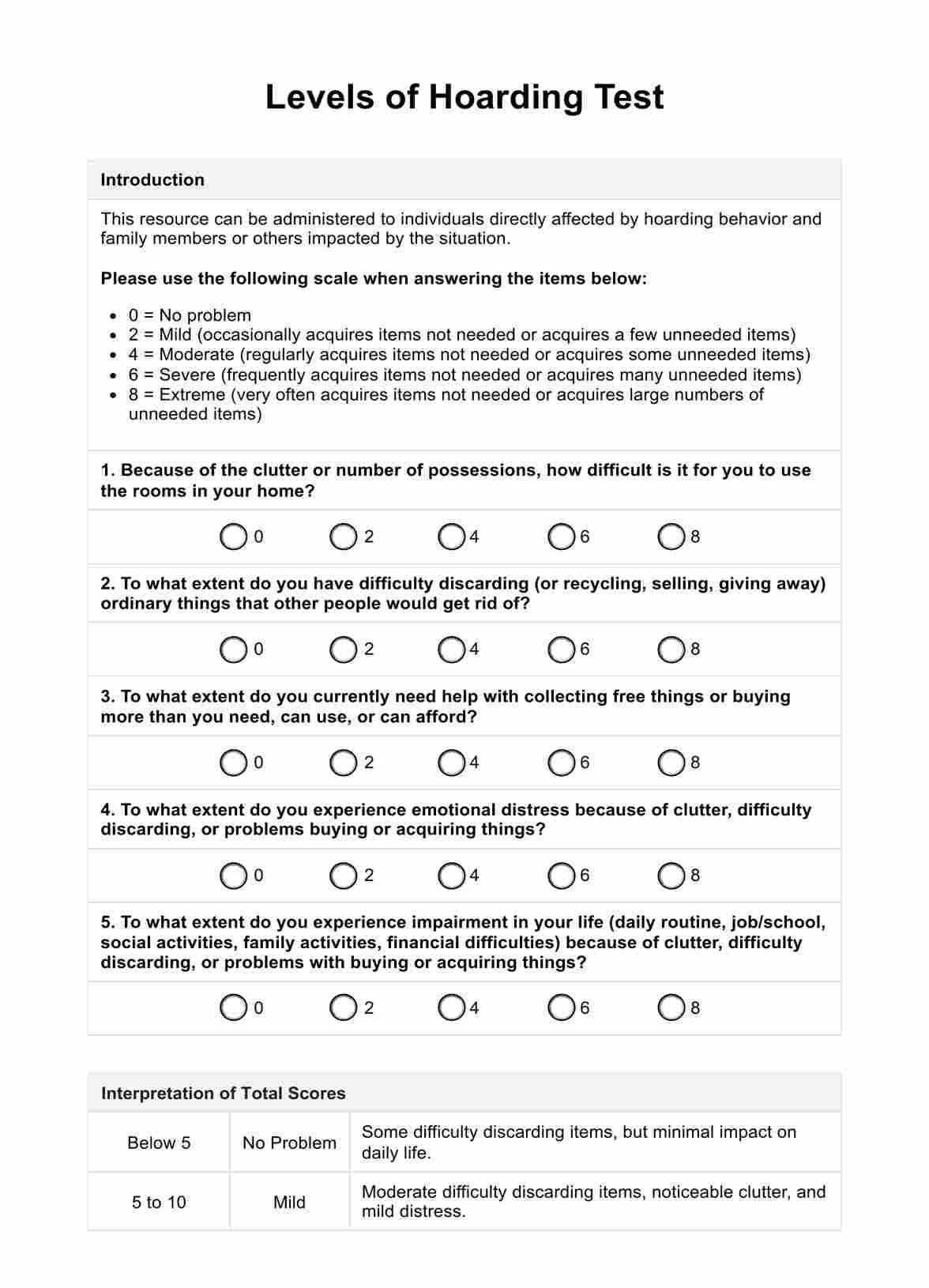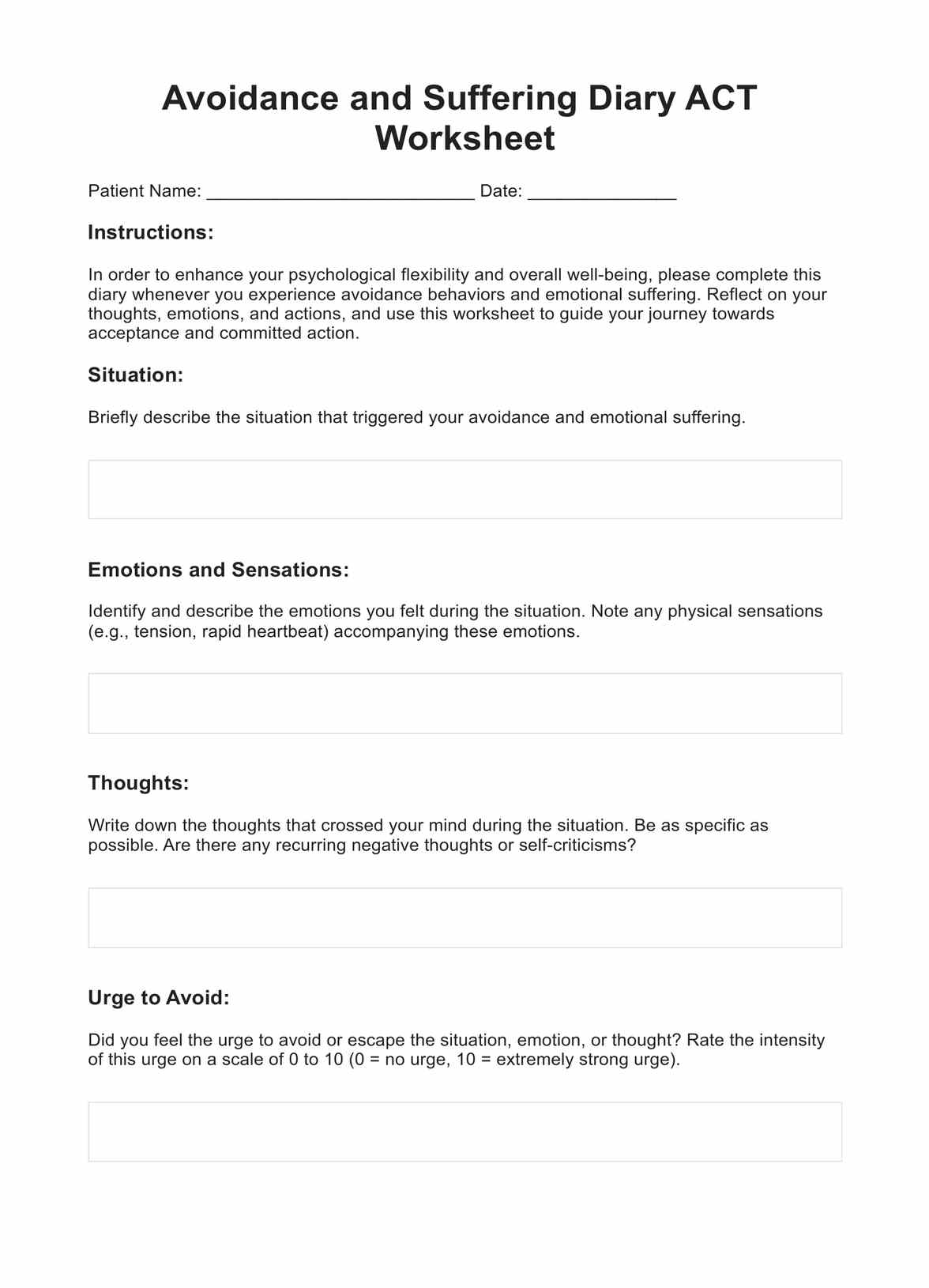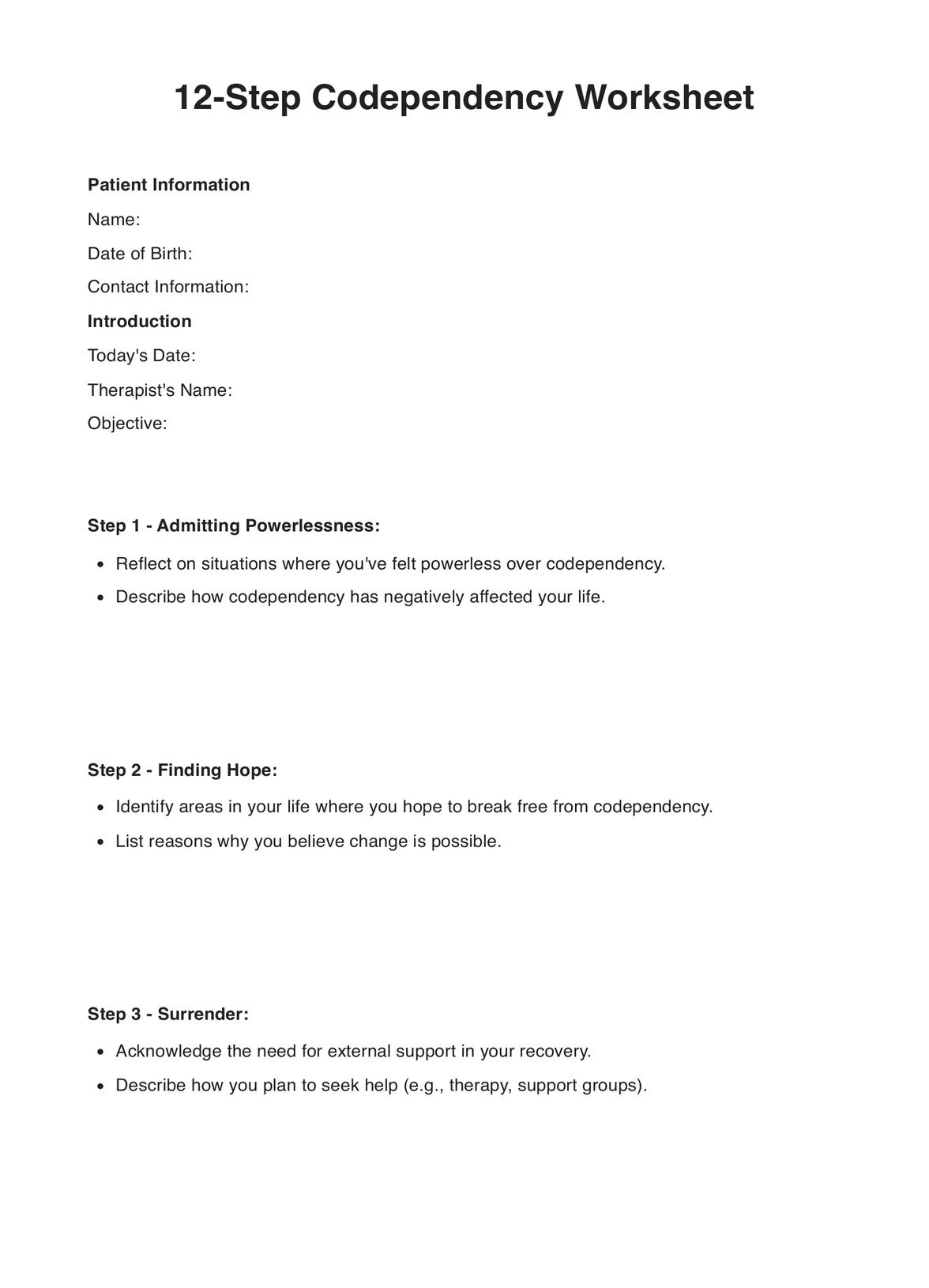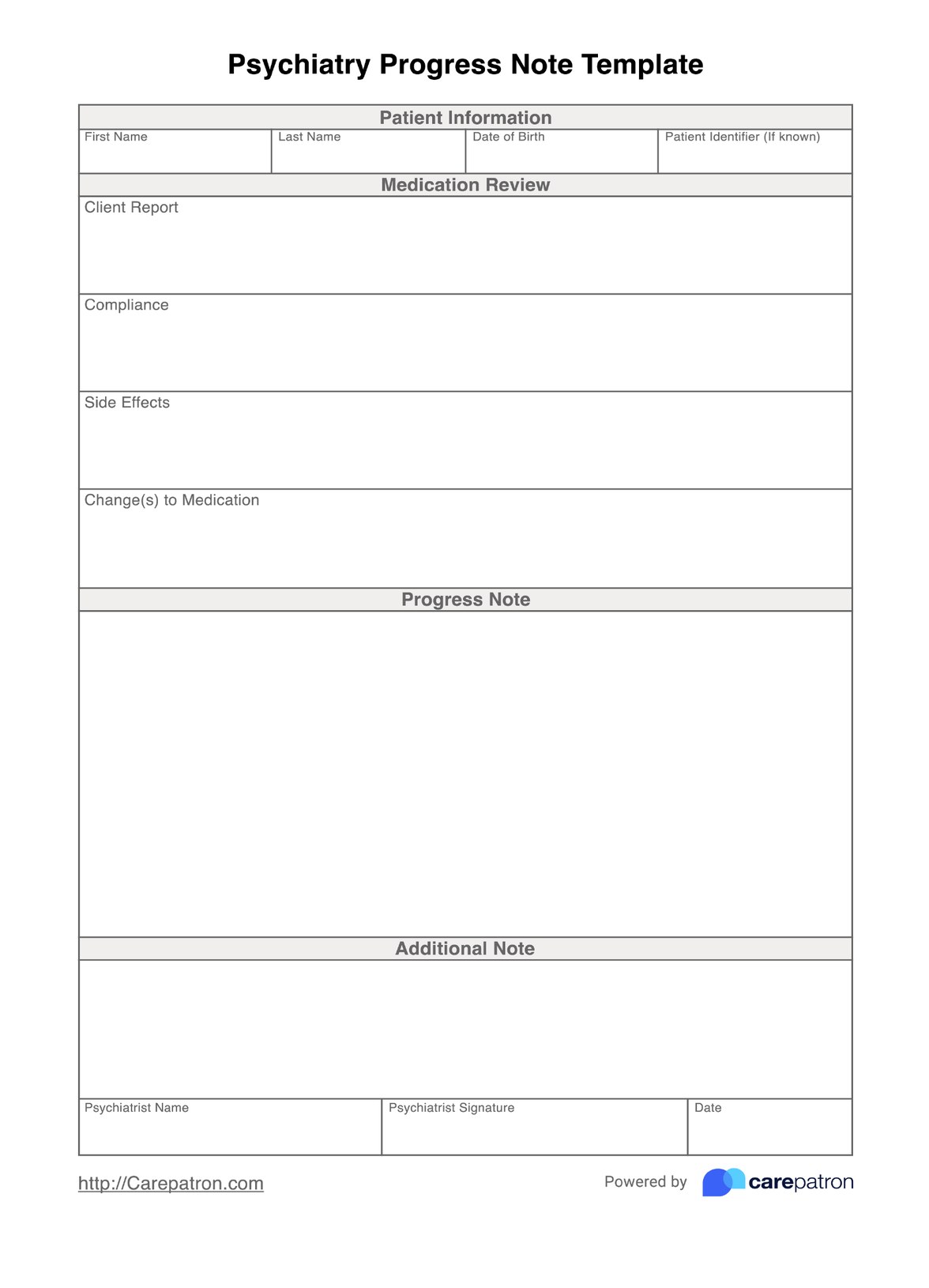Values Test
Use the Values Test and help your clients discover their personal values. Learn how to use them in decision-making with our free PDF template.


What is a personal values assessment?
Values are the guiding principles that shape our lives, behaviors, and decisions. They reflect our deepest beliefs, desires, and motivations, acting as a compass for our actions and interactions. Understanding clients’ internal values is crucial for practitioners, as these fundamental values reflect their core beliefs, a valued behavioral pattern, and goals toward personal success.
Personal values assessments are tools designed to help individuals identify their fundamental human values and understand how these influence thoughts, feelings, and behaviors (Nazirova & Borbala, 2024). T
Values assessments are valuable tools that aid individuals in understanding, identifying, and clarifying their core values, contributing to self-awareness and personal growth. Various methods and worksheets facilitate this process, allowing individuals to explore their basic human values comprehensively. Here are some different value assessments:
Rokeach Values Survey
The Rokeach Values Survey (RVS) is a widely recognized tool for assessing personal basic values. Developed by psychologist Milton Rokeach in the 1970s, this survey presents participants with two sets of values – terminal values (desired end-states of existence) and instrumental values (preferred modes of behavior).
Participants are asked to rank these values in order of importance, providing insights into their value priorities and the underlying motivations that guide their behavior and decision-making processes. The RVS has proven cross-cultural validity and is widely used in research across various disciplines, including psychology and sociology (Vauclair et al., 2011).
Values worksheets
Generic Values Worksheets often list common values and ask individuals to reflect on and select those that resonate with them. These worksheets serve as a foundational tool for initiating the process of value identification.
Values exploration worksheets
Values Exploration Worksheets encourage individuals to explore how their values align with various life domains, such as relationships, career, and personal development. This assessment takes a holistic approach, recognizing the diversity of ways values manifest in one's life.
Values Test Template
Values Test Example
How does our Value Test work
This printable Values Test, based on a Carleton University scale, includes values clarification and rating activities to help clients identify their core values and determine which are most significant to them. It is intended solely for self-exploration and personal development and is not a diagnostic tool. This test should not be used as a substitute for professional psychological assessment or counseling.
Here's how to get started with the template:
Step 1: Download the template
Access the Values Test template by clicking "Use template," allowing you to edit the resource via the Carepatron app. For a PDF copy, choose "Download."
Step 2: Familiarize yourself with the template
The template is designed to guide you through the Values Test template. It includes space for essential patient information, such as name and date. The template follows the Carleton University Values Test, composed of 5 items.
Step 3: Ask the patient to complete
Give the template to the patient to complete. Ensure that they fill out their details. Before patient completion, emphasize that there is no right or wrong answer; instead, it is about understanding their authentic answers.
Explain that it is crucial to provide honest answers to attain an accurate result. Be sure to guide the individual through the template, helping them with questions if necessary whilst ensuring not to suggest any answers.
Step 4: Review results
Once they are done, review their answers together and discuss any emerging patterns. Reflect on which values are critical to them and why. This can help shed light on what is truly meaningful to them and guide choices moving forward.
Benefits of reflecting on one's values
Here are the benefits of using our free Value Test template:
Restoring mental balance
Reflecting on one's values can help restore mental balance and reduce internal conflicts arising from misalignment between personal beliefs and daily actions. Clearly identifying core values helps individuals gain deeper self-recognition.
Aligned decisions and actions
Understanding one's values can also guide decision-making processes, ensuring that choices and actions align with freely chosen principles. This can be particularly beneficial for healthcare practitioners, whose day-to-day activities and professional growth often involve navigating complex ethical dilemmas and societal norms surrounding patient care and equality.
Self-development
Identifying the underlying causes and causal factors that shape their behavior helps individuals gain insights into their motivations, desires, and the guiding principles they hold dear. This self-awareness can empower them to make more informed decisions, embrace new ideas, and adapt to evolving patterns in their field.
Promoting well-being and fulfillment
Reflecting on personal values can also contribute to overall well-being and fulfillment. When individuals align their everyday decisions and behaviors with their core values, they are more likely to experience an exciting life and a greater sense of purpose.
References
Vauclair, C.-M., Hanke, K., Fischer, R., & Fontaine, J. (2011). The structure of human Values at the culture level: A meta-analytical replication of Schwartz's Value Orientations using the Rokeach Value Survey. Journal of Cross-Cultural Psychology, 42(2), 186-205. https://doi.org/10.1177/0022022110396864
Commonly asked questions
Assessing values is important because it helps individuals understand what drives their behavior, decision-making, and goals. By identifying their core values, people can align their actions with what truly matters to them, leading to greater personal fulfillment and satisfaction.
Values assessment tests are tools used to help individuals identify and understand their core values. These tests typically involve a series of questions or statements that ask individuals to rate their level of agreement or importance for various values. The results provide a profile of the individual's values, which can be used for personal growth, career development, or team building.
According to Rokeach, values are enduring beliefs people hold about what is suitable and desirable. He identified two types of values: terminal values, which are the end goals or outcomes that people strive for, and instrumental values, which are the means or methods used to achieve those goals.


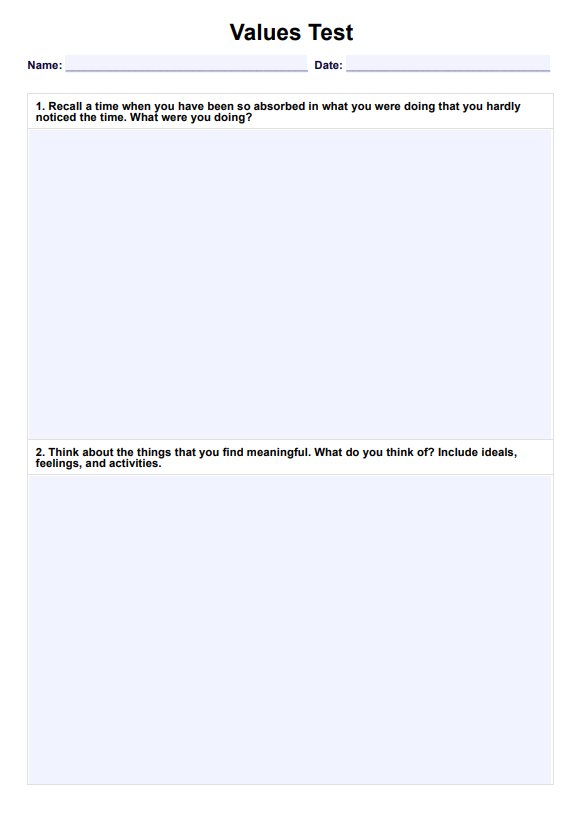
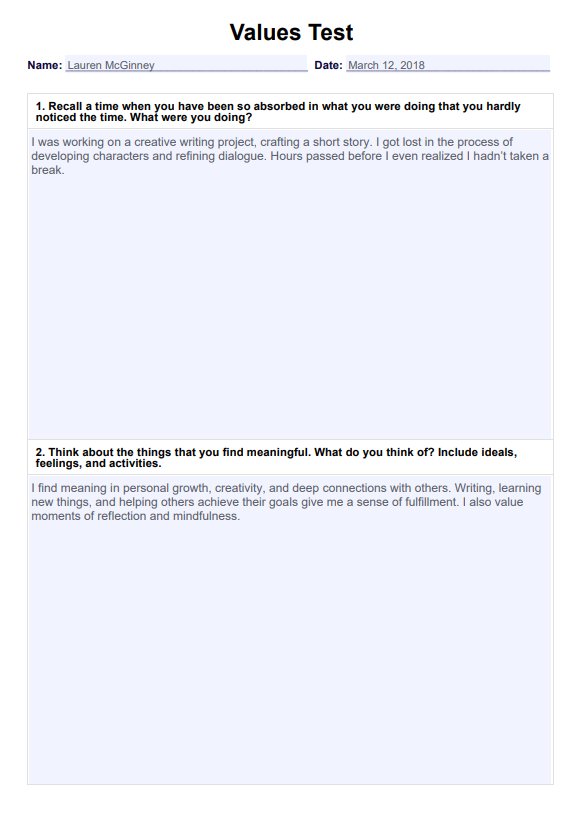

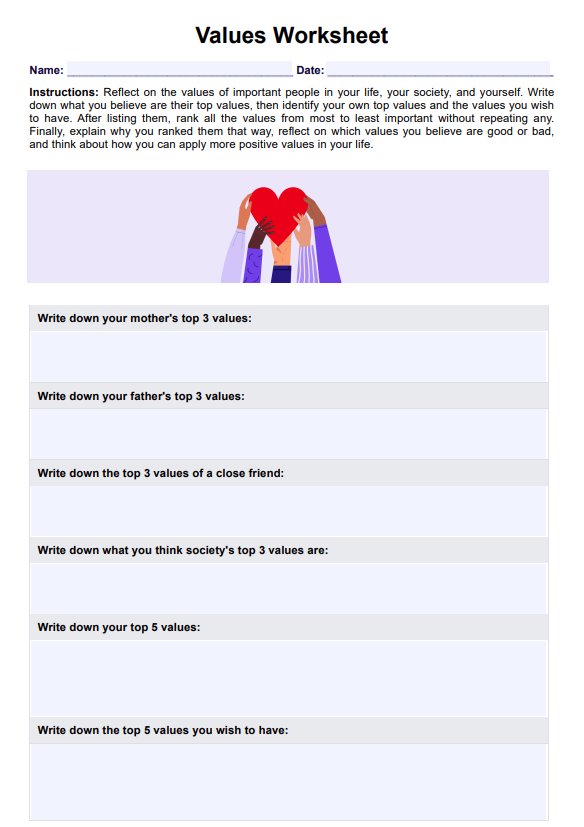














-template.jpg)





















































































